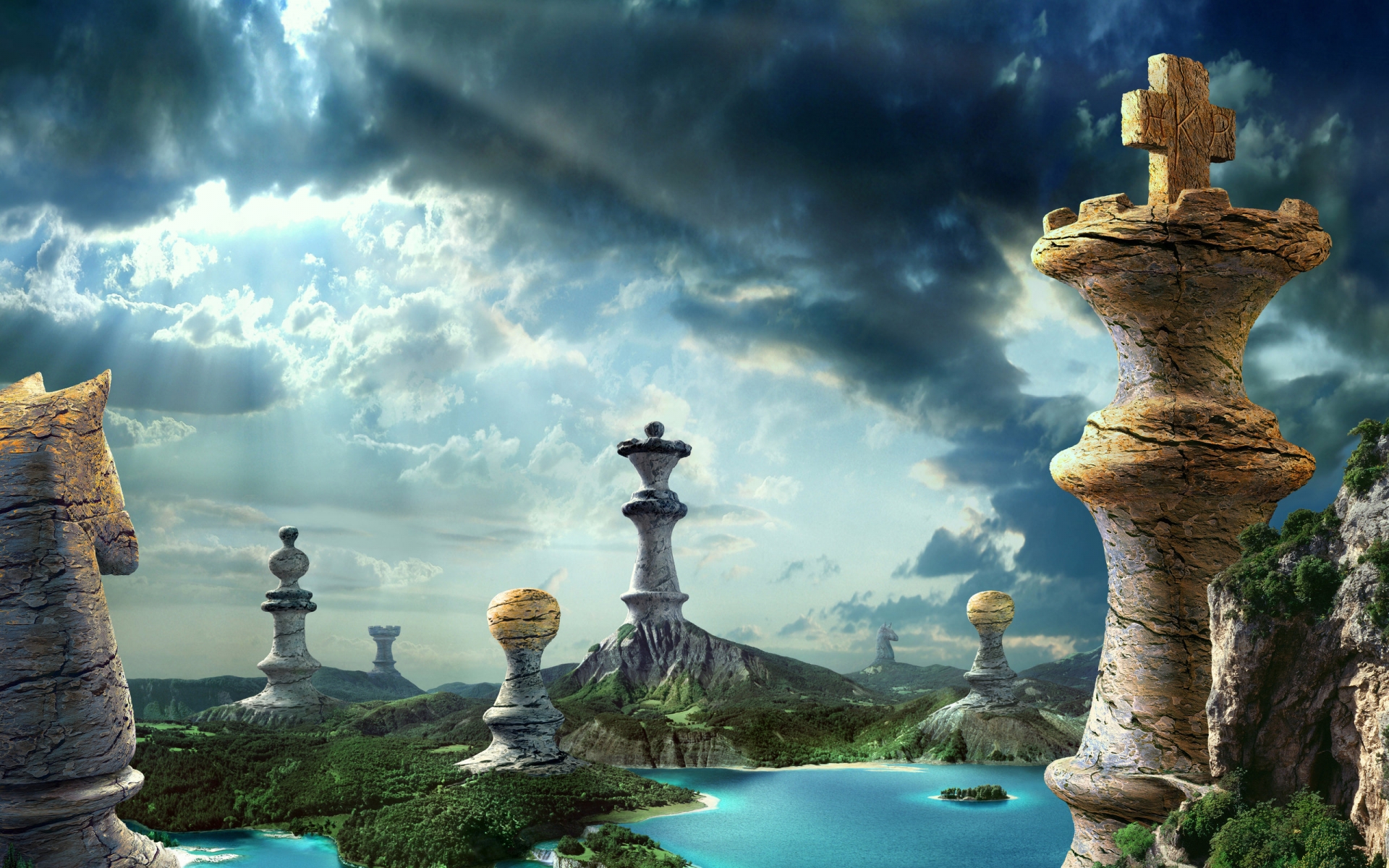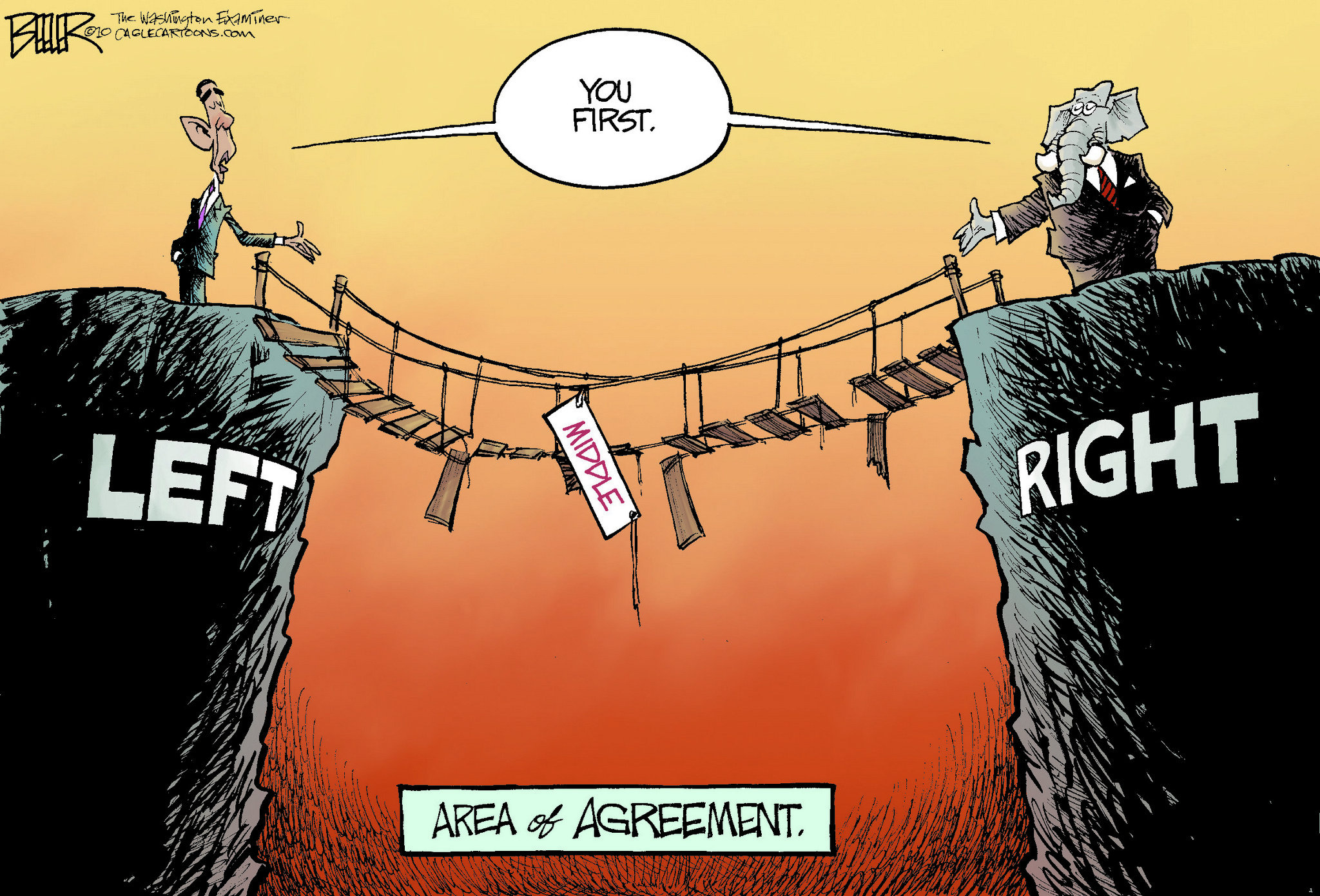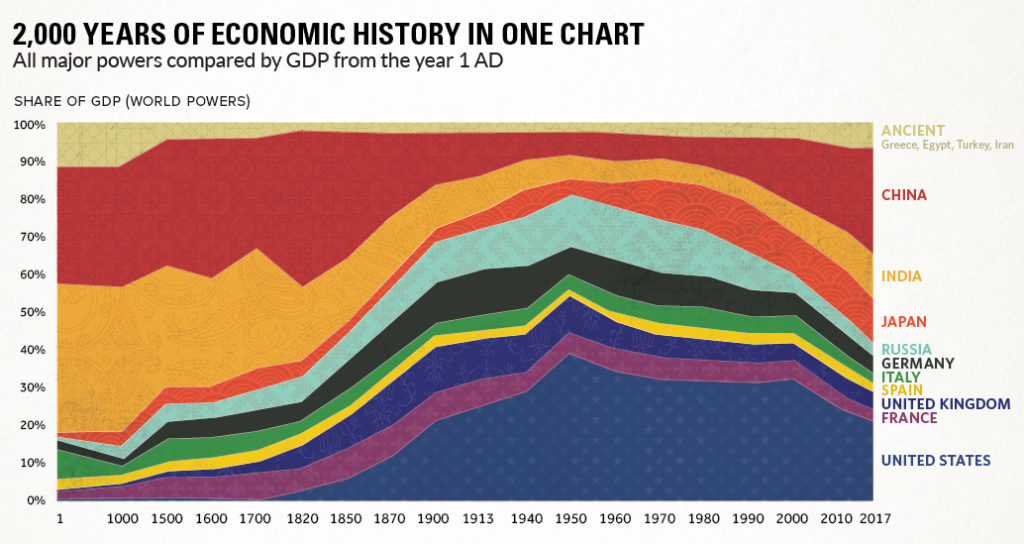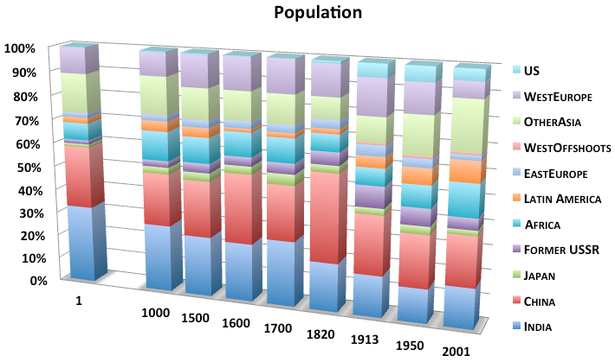Five centuries of western domination are currently being replaced by a new world order. All the political, economic, military, cultural and ideological cards are already being reshuffled. If the Corona virus rages deep enough, it will ‘only’ catalyze this transition. In this essay, I try to briefly describe three of these major intersections in our time. Part 1: Ideological competition / Part 2. ‘Glocal’ / Part 3. Social
Since 2006, Freedom House reports a decline of freedom and democracy in the world – that is, of freedom and democracy as we westerners like to see it in the world. China plays a major legitimising role in this decline: with its collectivist and paternalistic regime, it defies the ideological bench-mark of the West. No matter how much privacy, journalistic independence and political participation is reduced in Chinese society, no western country is willing to pay the price for a hard confrontation. Too costly, too risky. Some banks are too big to fail, some countries are too big to franchise. A giant like China cannot be reshaped in the image of the West, and under Xi Jinping it has abandoned any hesitation. China stresses openly the non-universal nature of western democracy and the West reveals its impotence by remaining silent. At the same time, nobody fails to see the failure of the “global democratic revolution” (announced by Bush during the Iraq War of 2003), the non-stop arms supplies from the ‘free world’ to autocratic regimes, and the exposure of western hyper-liberalism during the financial crisis. And one group is only too keen to notice it: the authoritarian leaders of this world. They eagerly take all this as an approval of their own aspirations.
Loss of economic power leads to a loss of ideological power. Gradually, it is dawning on us what the impact of this will be for the new world order. The “Xi Jinping Thought on Socialism with Chinese Characteristics for a New Era” has become an alternative ideology next to Western political thought. Every country is now forced to take position. Neutrality is not an option. Every country will be somewhere on the spectrum between western individualism and eastern collectivism, American liberalism and Chinese socialism.
Even the West will feel drawn towards a more eastern thought. According to the OECD, 60% of middle class consumption will take place in Asia in 2030. Products for the global markets (e.g. movies) will be more and more tailored towards the cultural taste of the East. This will leave the West not unaffected. And we have seen only the beginning of India’s rise. The more this country feels powerful enough to sail its own course (independent of the US), the more we will experience its cultural and ideological influence.
Now look at the pandemic the world is facing, in the midst of this ideological competition. What is drawing more attention as we fight the virus: our individual or collective interest? And who appears to be more effective in fighting the virus: the individualistic West or the collectivist East? Looking more specifically at the authoritarian regimes, it is not difficult to see how this crisis is only increasing their confidence. Corona has created the perfect reason for submitting 1.4 billion Chinese citizens only more to an omnipresent surveillance system.
Also the West has suspended a dramatic amount of freedoms to optimise its fight against corona. Citizens approve, trusting the measures will be temporary. But how temporary is temporary if a pandemic can happen again and all kinds of other dangers are just as menacing? Are we not also facing the threats of climate change, cyber-attacks, nuclear risks, global terrorism, et cetera? And do they not also require a collective response? Should we really restore all freedoms? And would it not be wise to adapt at least some of the digital technologies that are now being used so effectively in Asia? Corona is making a particular issue, already on our plate since the rise of China, only more urgent: the right balance between individual and collective interests, and more specifically between liberty and security. I expect western countries to move to the East in thinking. How far they will move, depends on the degree to which they can still explain to themselves the significance of individual liberty (and responsibility). For liberty means less control, and less control means taking risks for the sake of liberty. And the more insecure our lives become, the greater our faith in freedom will need to be to not sacrifice it to security.



